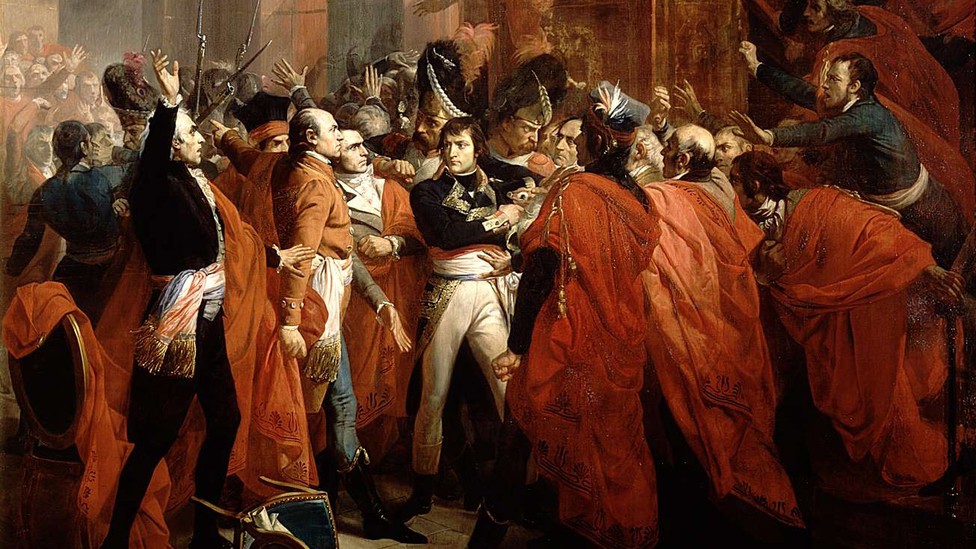Born Napoleon di Buonaparte, Napoleon Bonaparte fought his way to power on November 9, 1799. The famous Coup 18 Brumaire was his ticket into French leadership. You have probably heard his name mentioned in the realms of French history. As the exceptional military man he was, Napoleon rose through the ranks in quick succession. At the age of 24, he was named general, after which he was named the head of the French army.
The Coup 18 Brumaire
Napoleon Bonaparte could not have successfully staged the Coup 18 Brumaire without the help of two prominent political leaders, Abbe Sieyes and Talleyrand. Abbe Sieyes started a rumor that there was an imminent Jacobite uprising prompting the government to shift locations. Napoleon then suggested that the government convene at Saint-Cloud. Without the safety offered by Paris, Napoleon was able to intimidate the government and announced that he was dissolving the republic. He forced the upper house to decree an end to the government and appointed himself as the new head of government.
Seizing French power
Napoleon Bonaparte did not become Emperor of France by a democratic vote. Instead, he staged an elaborate coup, after which he became dictator. The Coup of 18 Brumaire gave Napoleon full autonomy over the French government. He wasted no time setting up The Consulate, a new government with him at the helm of leadership. To create a new government, Napoleon enlisted the services of four jurists to overhaul the French legal system. Only after the government was set up did Napoleon Bonaparte gain the title of the first consul.

